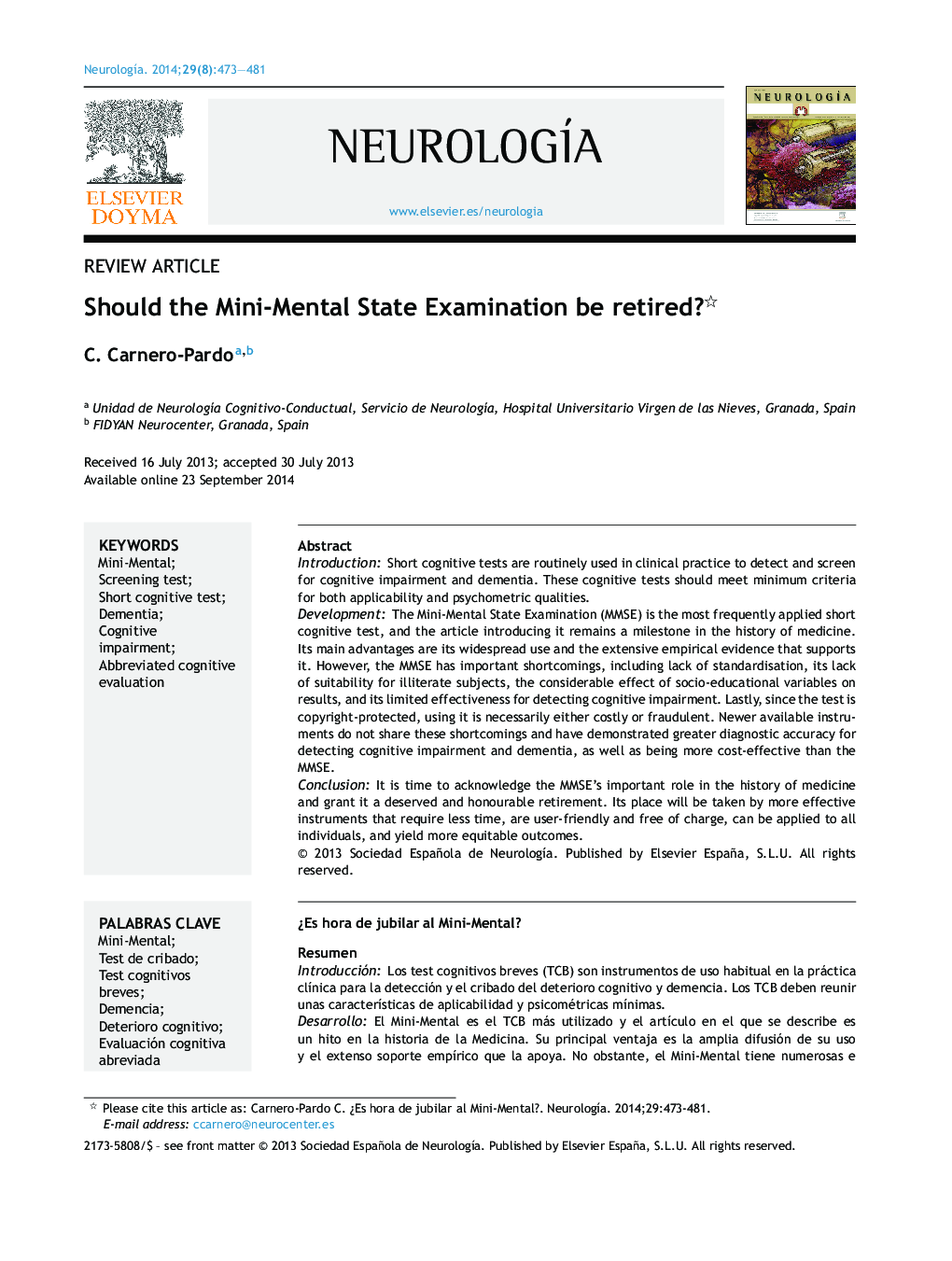| کد مقاله | کد نشریه | سال انتشار | مقاله انگلیسی | نسخه تمام متن |
|---|---|---|---|---|
| 3077201 | 1189127 | 2014 | 9 صفحه PDF | دانلود رایگان |

IntroductionShort cognitive tests are routinely used in clinical practice to detect and screen for cognitive impairment and dementia. These cognitive tests should meet minimum criteria for both applicability and psychometric qualities.DevelopmentThe Mini-Mental State Examination (MMSE) is the most frequently applied short cognitive test, and the article introducing it remains a milestone in the history of medicine. Its main advantages are its widespread use and the extensive empirical evidence that supports it. However, the MMSE has important shortcomings, including lack of standardisation, its lack of suitability for illiterate subjects, the considerable effect of socio-educational variables on results, and its limited effectiveness for detecting cognitive impairment. Lastly, since the test is copyright-protected, using it is necessarily either costly or fraudulent. Newer available instruments do not share these shortcomings and have demonstrated greater diagnostic accuracy for detecting cognitive impairment and dementia, as well as being more cost-effective than the MMSE.ConclusionIt is time to acknowledge the MMSE's important role in the history of medicine and grant it a deserved and honourable retirement. Its place will be taken by more effective instruments that require less time, are user-friendly and free of charge, can be applied to all individuals, and yield more equitable outcomes.
ResumenIntroducciónLos test cognitivos breves (TCB) son instrumentos de uso habitual en la práctica clínica para la detección y el cribado del deterioro cognitivo y demencia. Los TCB deben reunir unas características de aplicabilidad y psicométricas mínimas.DesarrolloEl Mini-Mental es el TCB más utilizado y el artículo en el que se describe es un hito en la historia de la Medicina. Su principal ventaja es la amplia difusión de su uso y el extenso soporte empírico que la apoya. No obstante, el Mini-Mental tiene numerosas e importantes limitaciones, fundamentalmente la falta de estandarización, el no poder ser aplicado a analfabetos, la gran influencia en sus resultados de las variables socioeducativas y la discreta utilidad para la detección de DC; además, este instrumento está protegido por copyright por lo que su uso es gravoso o fraudulento. En la actualidad, hay TCB disponibles que no cuentan con estas limitaciones y que han mostrado una mayor utilidad diagnóstica e incluso un mayor coste-efectividad que el Mini-Mental en la detección de deterioro cognitivo y demencia.ConclusiónEs hora de reconocerle al Mini-Mental el importante papel que ha desempeñado en la historia de la Medicina y concederle una merecida y honrosa jubilación, dando paso a instrumentos más breves, fáciles y baratos, que puedan ser aplicados libremente a todos los individuos y que sean más eficientes y justos.
Journal: Neurología (English Edition) - Volume 29, Issue 8, October 2014, Pages 473–481